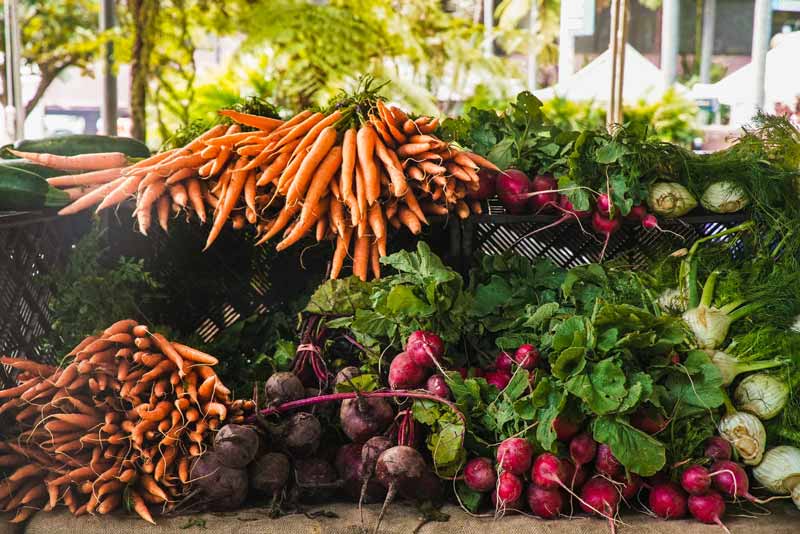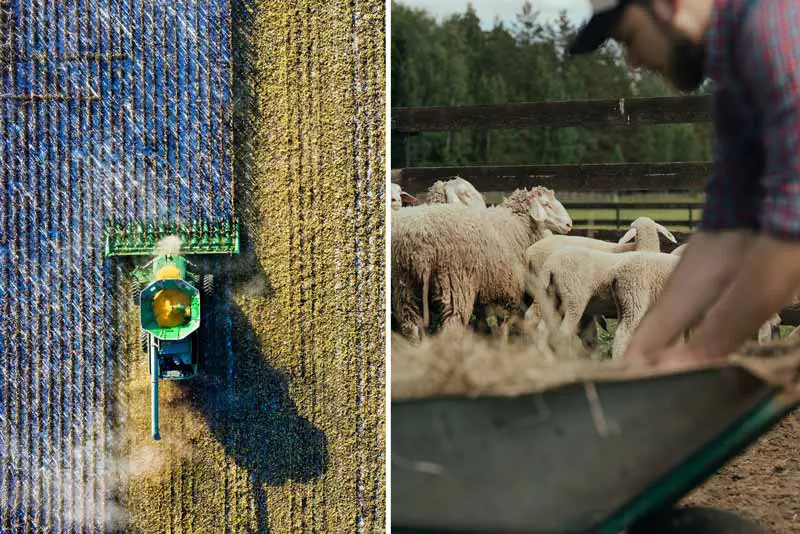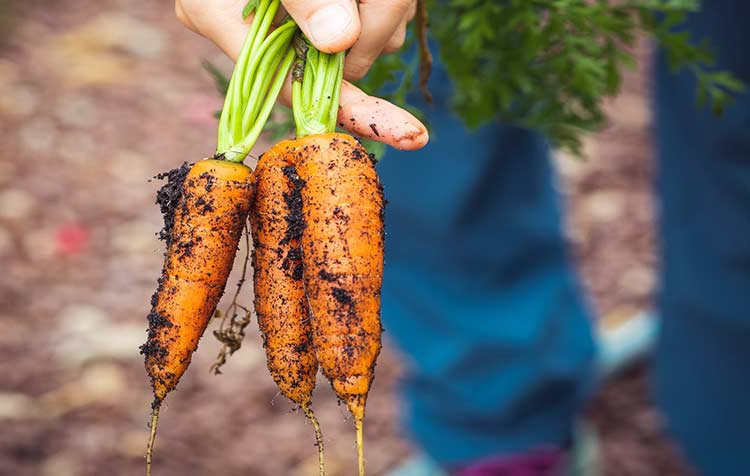What is organic farming? If you're looking for the answer to that question, you've come to the right place! The way in which we produce our food contributes significantly to the biggest environmental problems of our time at. Energy and water consumption, feed cultivation, greenhouse gas emissions... the list of challenges facing the agricultural industry is endless - and a rethink is inevitable.
In this article I would like to introduce you to everything you need to know about organic farming - from its definition, measures and identifying features, advantages and disadvantages, to the future of this environmentally friendly, agricultural method.
What is organic farming?
Organic agriculture (also called sustainable organic agriculture, biological agriculture or ecological agriculture) refers to an Farming economy in harmony with nature. Their goal is the production of high-quality food through a closed material cycle, that is, the preferential use of their own, not harmful to nature, natural resources. Since 1991, organic farming has been regulated by law at the EU level - corresponding farms are inspected annually.
Measures of ecological agriculture
The definition of organic farming makes sense? Then I would like to introduce you to some of its characteristics and measures to make the principle even more tangible and understandable:
- Feed and nutrients come from the own farm
- Number of livestock is tied to the available land area
- Antibiotics are only used when absolutely necessary
- No chemical pesticides are used
- One uses beneficial insects (e.g. ladybugs or ichneumon wasps) to control pests
- Less susceptible food varieties are preferentially grown
- Particularly high value is placed on a varied, goal-oriented crop rotation
- Food is not irradiated during production
- Genetically modified organisms are not used
- Weeds are controlled mechanically
- Mineral nitrogen fertilizers are not used (green manure is used instead)
- Organized humus management for the preservation of soil fertility
Notice: Many farmers also develop technically and use these digital Agricultural software from 365FarmNet, in order to reconcile economic efficiency and environmental protection.
Advantages and disadvantages of organic farming

Organic farming brings with it an incredible number of benefits for nature, for wildlife and for us humans. But there are also reasons why not every farmer is farming organically. Here I would like to give you a clear overview of the most important advantages and disadvantages.
Advantages
- Climate protection: Compared to conventional agriculture, organic farming impresses with a great energy balance and counteracts the climate change against. This is due not least to the fact that no chemical fertilizers or pesticides are used, the use of concentrated feed is reduced and, in principle, the company operates in harmony with nature.
- Species protection: The preference for native, hardy plant species - and the avoidance of pesticides and chemical fertilizers promotes wild species of animals and plants. Organic farming is particularly effective against the decline of insects, for example. How you can Stop insect mortality By the way, you can learn more about this in the detailed, linked article.
- Soil Conservation: Organic farming ensures the preservation of soil fertility and the promotion of soil structure. This prevents the Soil erosion and exposure to pollutants.
- Animal welfare: The animals on the farms enjoy more space and daylight and are fed more naturally. In addition, cows, for example, are not dehorned and pigs' tails are not docked. (less cruelty to animals)
- Consumer protection: Organically produced food is healthier because it is richer in vitamins and less or not at all contaminated with residues such as nitrates, pesticides and medicines or colorants and flavorings. This also prevents the formation of intolerances and multi-resistances. The certified organic seal offers additional security.
This list can be continued considerably further. For example, by not using chemicals, one also promotes the health of the farmers themselves. In addition, local organic farming supports above all the regional economy.
Disadvantages
- Faster perishability: Without the use of preservatives, organic produce tends to spoil somewhat faster. In the field, plants without pesticides are also more susceptible to disease.
- Larger footprint: Per animal, organic farming reasonably requires more area of a farm - the space required for growing crops is also somewhat higher.
- Strict requirements: Farmers must meet certain strictly controlled requirements in order to continue producing in the spirit of organic agriculture.
- Lower cost effectiveness: At least in the short term, organic farming is more cost-intensive for the farmer. In the long term, however, he benefits above all from the high soil fertility of his fields.
How to recognize products from organic farming?

Now we know that the benefits of products from organic farming outweigh the disadvantages for humans, animals and the environment. But how can I support this form of agriculture? The answer is provided mainly by the following seals and certifications of food:
- EU organic logo and organic seal: Throughout Europe, this well-known seal is awarded to organic products and foodstuffs that have been produced in accordance with the principles of organic farming.
- Demeter seal: Demeter is the most sustainable way of growing food, which ensures long-term soil fertility and produces the most natural and valuable food for us humans.
- Bioland seal: Criteria for organic products go even further than those of the EC organic regulation.
- Naturland seal: Naturland's criteria are extremely strict. For example, animal transports may only last a maximum of 8 hours. In addition, at least half of the feed must come from the farm itself.
- Non-GMO label: Plant-based foods must contain absolutely no ingredients or additives from genetically modified plants.
- …
By the way, terms like "from the region" or "sustainable" are not protected by law! So you have to look a little closer.
Notice: For you as a consumer, organic farming creates further opportunities. So you can in the sense of solidarity agriculture also support farmers directly for growing food for you.
The future of organic farming is splendid

Organic farming is also the future in agriculture. The figures confirm this: demand for organic products, for example, increased by 9.7 percent between 2018 and 2019.₁ In the end, it's not just farmers and us consumers - but all life on this earth that benefits.
Here are some more further articlesthat can make your diet even more environmentally friendly:
Do you have any questions or suggestions about this article on organic farming? Then feel free to write me a comment.
Stay sustainable,

PS.: In the Knowledge blog I will explain many more Technical terms from the field of sustainability. For example, learn now what Speciesism means.
₁ Federal Ministry of Food and Agriculture: Strengthening organic farming - future strategy for organic farming, available at https://t1p.de/npko. [15.01.2021].





